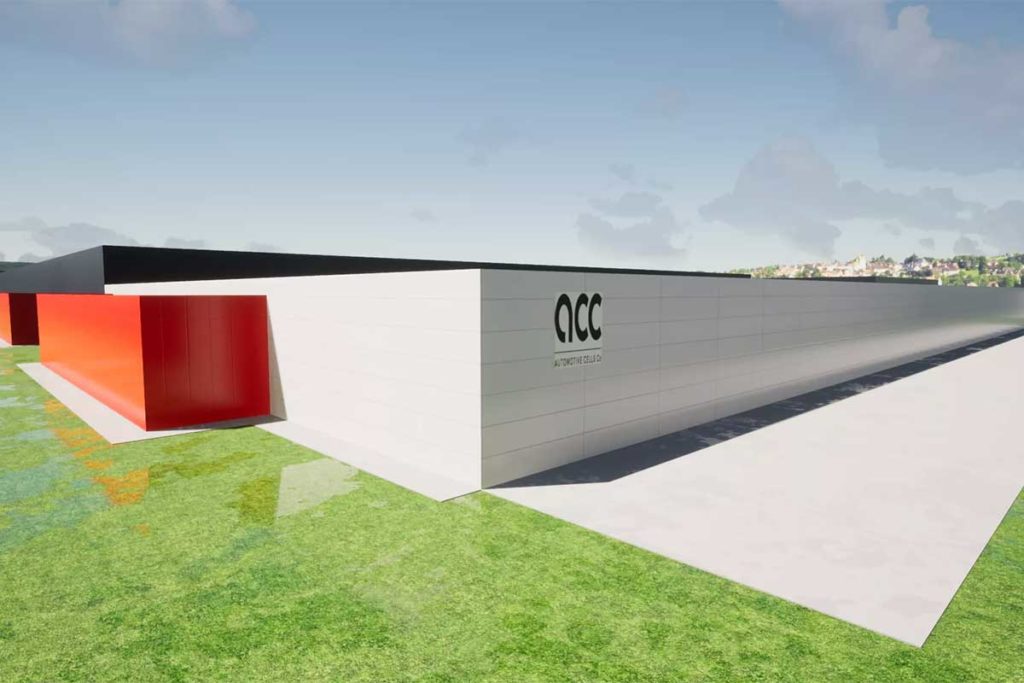
In June 2024, the Automotive Cells Company (ACC) joint venture, which brings together StellantisMercedes-Benz and TotalEnergies, announced a pause in plans for battery Gigafactories in Europe, notably at Termoli in Italy and Kaiserslautern in Germany. The reason given at the time? Falling demand for electric vehicles (EVs) in Europe. However, a new and unexpected turn of events seems to be calling the future of these projects into question.
Initially, falling demand for electric vehicles was presented as the main reason for the suspension. In 2024, the EV market slowed down in Europe. Forecasts by ACC, which had bet on lithium-nickel-cobalt-manganese (NCM) batteries for its factories, turned out to be less optimistic than expected, with reduced margins.
But behind this justification lies a more complex reality. The battery sector is evolving rapidly, and one technology in particular, Lithium Iron Phosphate (LFP) chemistry, has become a serious alternative to NCM batteries. While this new chemistry enables lower production costs, it was not initially included in ACC's roadmap.
To adapt to this technological revolution, Stellantis has signed strategic partnerships with leaders in the LFP battery market, such as CATLto secure the supply needed to produce more affordable electric vehicles, such as the Citroën e-C3, the Fiat Grande Panda and the future electric Fiat 500.
Just as the transition to LFP batteries seemed to be settling in as a necessary pivot for ACC, A new statement from TotalEnergies boss Patrick Pouyanné has cast a pall over the future of Gigafactories in Europe. In an interview on February 10, 2025, Pouyanné questioned the relevance of developing new plants in Germany and Italy, suggesting that the focus should instead be on the existing plant in France, at Billy-Berclau. "It's better to concentrate efforts on one plant rather than three," he asserted, pointing out the financial risks of multiplying sites before the first is fully operational.
TotalEnergies' stance marks a break with ACC's original plan for European expansion, particularly in Italy and Germany. Mercedes-Benz and Stellantis, which have direct interests in these two countries, could see these statements as a brake on their ambitions. After all, these plants were supposed to produce batteries for EVs destined for these markets. TotalEnergies' skepticism about building new plants could disrupt the plans of Stellantis and its allies.
Relations between the three ACC partners could come under pressure. Mercedes-Benz and Stellantis, while agreeing on the move towards electrification, are not necessarily pursuing the same strategy as TotalEnergies. By insisting on the priority of the French plant, Patrick Pouyanné is putting considerable pressure on his European partners, who are seeking to secure production capacity in their local markets.
Carlos Tavares, ex-CEO of Stellantis, has already been briefed by Pouyanné challenges inherent in the production of battery cells, requiring expertise far more complex than that of the traditional automotive industry. "We're not just talking about robots here, but about a process that requires specialized know-how," said the TotalEnergies CEO.
While we have been waiting for further information on battery plants in Italy and Germany in the first half of 2025, this new statement from a major project partner is unexpected. Stellantis and his partners face some tough choices. This is a major blow for the Kaiserslautern and Termoli plants, which are already facing difficulties.

Stellantis has sealed Acc's future by creating an lfp factory with the Chinese. This future plant, which will be 3 times larger, will not be located in Italy or Germany, but in Spain.
And when you consider that lfp technology is set to catch up with nmc technology at half the price, it's easy to fear for Acc, which doesn't even have the R&D budget to make lfp....